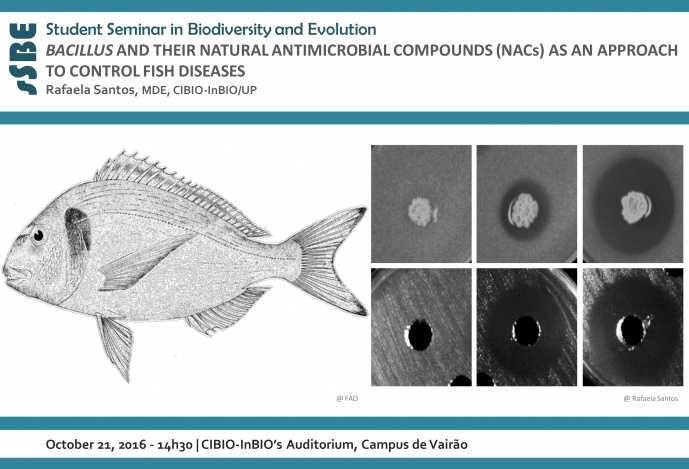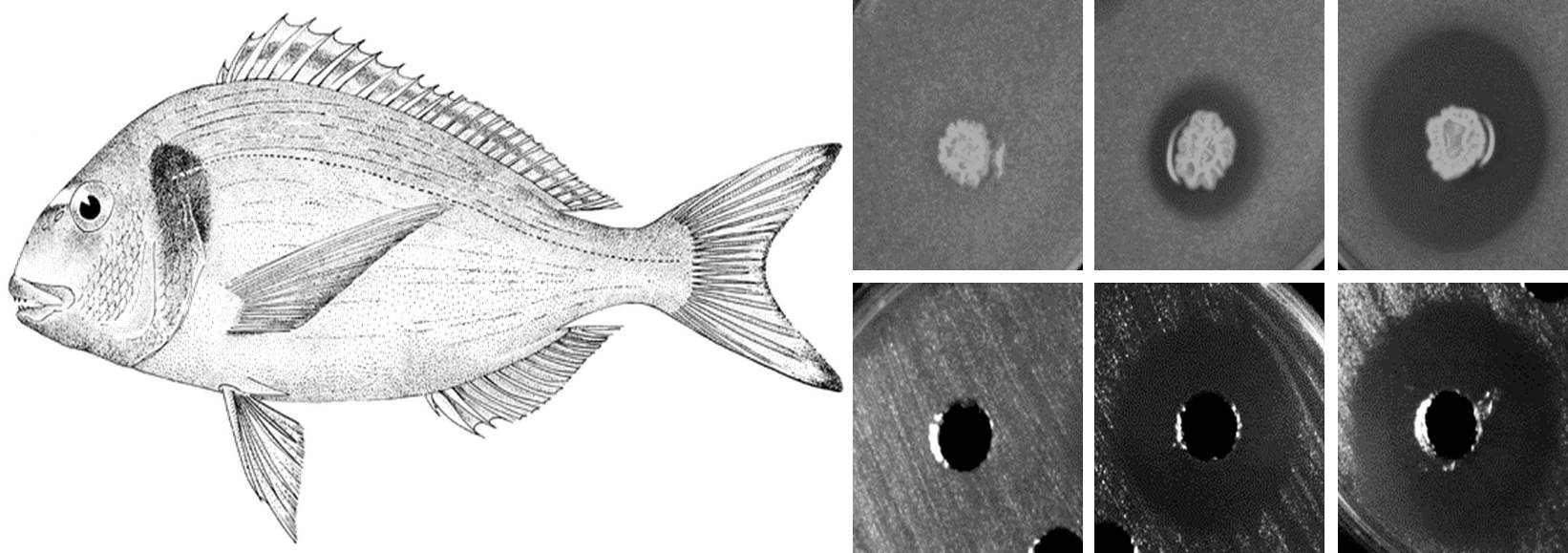BACILLUS AND THEIR NATURAL ANTIMICROBIAL COMPOUNDS (NACs) AS AN APPROACH TO CONTROL FISH DISEASES

STUDENT SEMINAR IN BIODIVERSITY AND EVOLUTION

One of the biggest constraints in the aquaculture sector is the occurrence of bacterial disease outbreaks. The conventional approach is the use of antibiotics as therapeutic and prophylactic measures, exacerbating the potential for antimicrobial resistance development among fish pathogens. Nowadays, new disease-preventive measures are emerging, such as the use of probiotics with particular interest in Bacillus species. In fact, these bacteria are usually known by their resistance to environmental challenging conditions, and are known to produce Natural Antimicrobial Compounds (NACs) able to antagonize diverse pathogens, which constitutes a barrier against pathogens proliferation contributing to host health. Taking advantage of their ubiquitous nature, we were able to isolate, from the gut of different fish species, several Bacillus strains with antimicrobial potential against some of the most important fish pathogens. The corresponding bioactive molecules, capable of inhibiting pathogens growth and biofilm formation are currently under investigation.
Graduated in aquatic sciences, Rafaela Santos, is currently an MSc student at the Faculty of Sciences, University of Porto. Last year she joined the Nutrition and Immunobiology group of CIIMAR (Interdisciplinary Centre of Marine and Environmental Research) to carry out her master dissertation, under the supervision of Dra. Cláudia R. Serra.
Image credits: FAO and Rafaela Santos